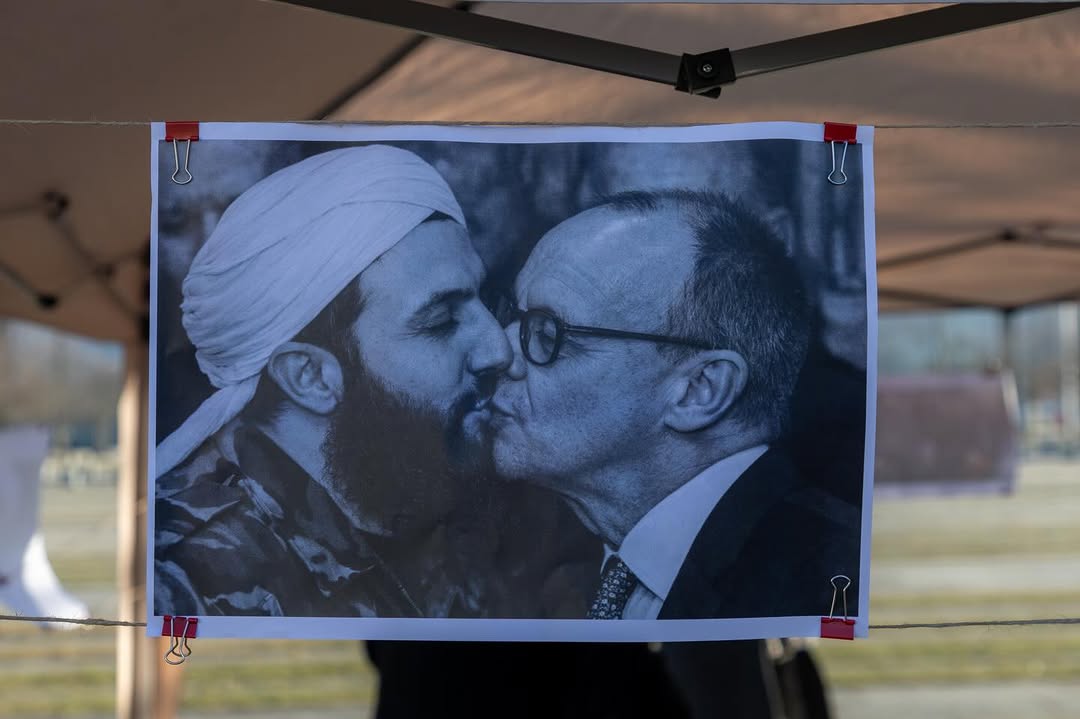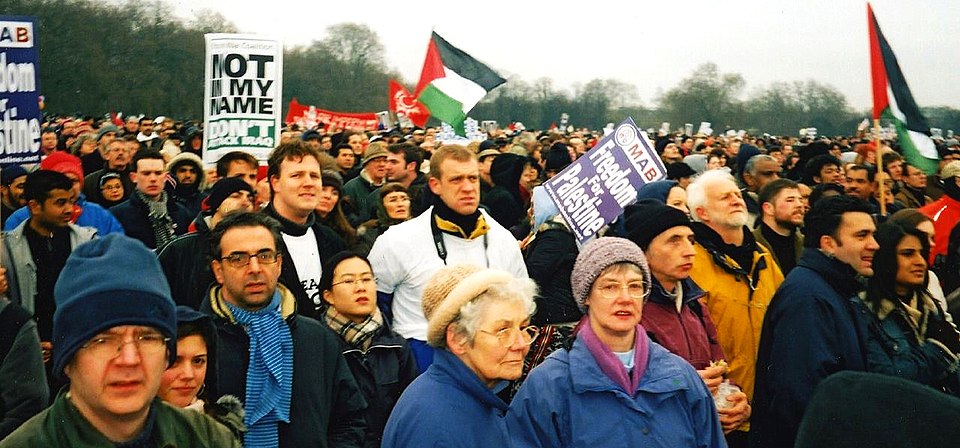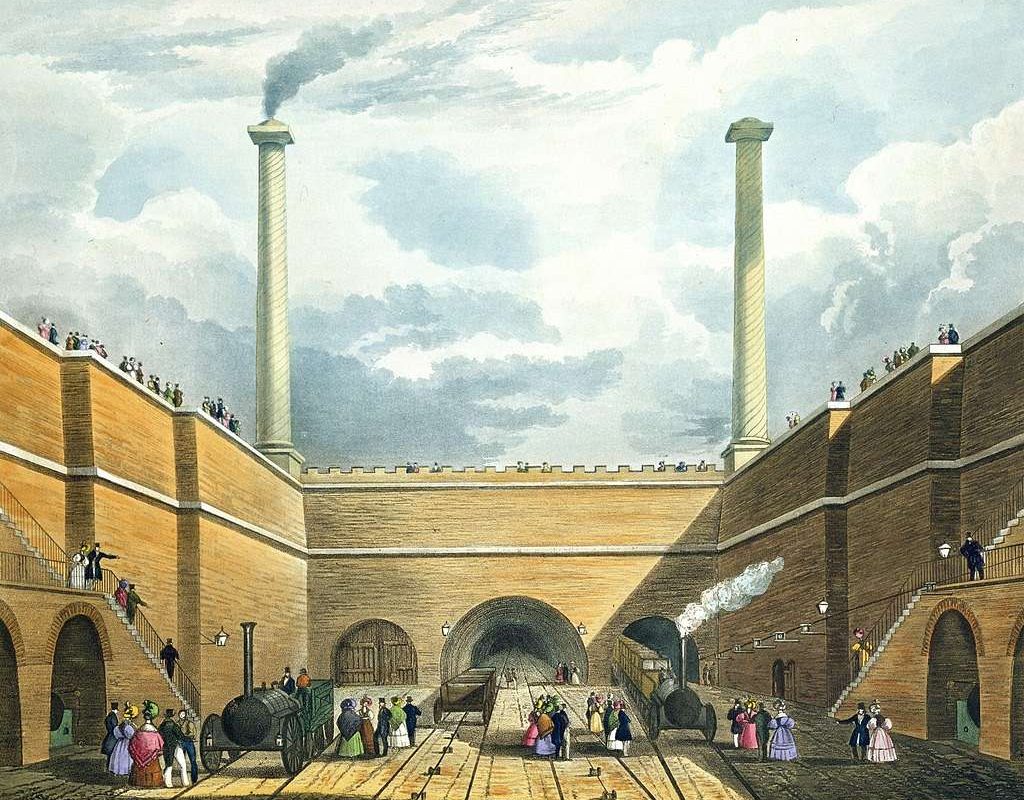We need a radical change. In the 20th century 86 million people died in wars. The 21st century began with the war on Iraq and today we are witnessing a genocide in Gaza. Climate change poses an existential threat to life on earth. Climate scientists now talk of the Great Acceleration, and Runaway Climate Change, the destructive impact of which can no longer be predicted. A report commissioned by the Pentagon in 2019, Implications of Climate Change for the US Army, found that the critical infrastructure in the US, including the power grid and the military itself, might not withstand climate events predicted not in 100 years, or 50 years but in 20 years’ time. This is the age of catastrophe, and catastrophe creates monsters.
Antonion Gramsci first gave a name to the age of monsters. He died in a fascist jail 1937, aged 46 having spent the previous decade in prison, so he knew what monsters looked like. In the 1930s, they looked like Stalin, Mussolini, Franco and Hitler. Today’s monsters are waiting in the wings, waiting for their chance to seize on the hopelessness, despair and anger born out of inequality, insecurity and injustice. If the centre cannot hold, people will look either to the right or the left. We have born witness to the Holocaust and so we know what threat the far right represents, but what alternative can Marxism offer?
Marx often wrote that capitalism was like a vampire, growing more powerful by sucking the blood from living labourers. Marx himself has also risen repeatedly from the dead, declared dead and buried then resurrected. Every time there is an economic crisis, as there was in 2008-9, every time there is a mass insurgency against the system, such as the Arab Spring of 2011, Marx is revived by perplexed commentator who wonder whether he was right all along.
In essence Marxism is based on making visible the two great divisions, two antagonisms, that shape society. Firstly, capitalists, those who own and control the means of making wealth, are locked into competition with each other. Competition creates technological innovation and creates new markets to make more profits. This process takes place with no concern for the negative consequences for human life, or that planet. Competition between corporations and nation states increasingly spills over into the drive towards imperialism and an era of endless war.
The second great division is that between the capitalist class and the working class. The capitalists are driven to intensify exploitation, and this pulls more workers, especially women, into the global workforce. Working-class people have no choice but to organise collectively to resist attacks on their living conditions. This means that ingrained prejudices can be dissolved by the need for unity and the lack of confidence we all experience can be overcome by the process of organising together and realising our own power.
Of course, the world is very different now to the world Marx inhabited. The names of the rich have changed, their corporations have new names, the commodities that drive the world market are different, but the fundamental processes of competition and exploitation remain the same. Capitalism holds out a promise of development and innovation and simultaneously subordinates the potential of more productive technology to intensifying exploitation and inequality. As Marx observed in 1856, ‘On the one hand, there have started into life industrial and scientific forces, which no epoch of the former human history had ever suspected. On the other hand, there exist symptoms of decay, far surpassing the horrors recorded of the latter times of the Roman Empire. In our days, everything seems pregnant with its contrary: Machinery, gifted with the wonderful power of shortening and fructifying human labour, we behold starving and overworking it; The newfangled sources of wealth, by some strange, weird spell, are turned into sources of want; The victories of art seem bought by the loss of character. At the same pace that mankind masters nature, man seems to become enslaved to other men or to his own infamy… All our invention and progress seem to result in endowing material forces with intellectual life, and in stultifying human life into a material force’. Marx’s description could apply perfectly to the uses and abuses of AI today.
The commodities which we produce take on a life of their own. Markets appear to be like the weather, their vacillations the product of unknowable forces rather than investors and speculators. The institutions which are supposed to regulate and support our ways of life are experienced as hostile bureaucracies far beyond human control. This leads to what has been called Capitalist Realism, the difficulty of envisaging an alternative way of organising society. This generates apathy and cynicism. It seems easier to imagine the end of the world than the end of capitalism. But as the great Sc-Fi writer Ursula LaGuin commented, ‘We live in capitalism. Its power seems inescapable. So did the divine right of kings. Any human power can be resisted and changed by human beings’.
We can understand why people despair and turn to scapegoating, to building walls, to blaming people born somewhere else for failing health and welfare provision. But what we cannot forgive is the pound shop Enoch Powells who ‘say the unsayable’ on all the multiple media platforms they access to point their fingers at desperate people fleeing in small boats while welcoming those who come in luxury yachts. Politicians who refuse to pledge the money for new hospitals and schools wage a phony war on ‘woke’ to deflect attention from their own failings. Today, one half of Tory Party members believe Islam is a threat to the British way of life. But it was not Muslims who crashed the economy, it was not refugees who murderously mismanaged COVID, it was not trans people who passed a budget so disastrous we are still paying for it. They are not responsible for the fact that today some 4.2 million children, and 48 percent of children from Black and ethnic minority backgrounds live in poverty, according to the Child Poverty Action Group.
We need hope, a confidence that things can change. The heart of the Marxism is the idea that the self-emancipation of the working-class is the act of the working-class. Parliament presents a nauseating spectacle of scapegoating, of the lurch towards authoritarianism and surveillance and a desperate scramble to save lucrative careers and pensions. We’ve heard a lot about ‘mobs’ on London’s streets. There is a mob in Britain, a mob seeking to undermine parliament democracy, but it thrives within parliament, with the lobbyists, the corrupt MPs, the revolving door between parliament and corporations. Keir Starmer seeks to blackmail us into voting for him with threats of a Tory revival, but thousands of people want and demand something better.
Behind parliamentary pantomimes there is a deeper problem. The real power in society cannot be tamed or controlled by parliament. The power lies with the huge multinationals that can take their money in and out of countries and use this to bully elected governments to do their bidding. It also lies with the state which is far beyond democratic control and serves the interests of the rich and powerful.
People will say that the system has fundamentally changed since Marx’s day. The names of the capitalists and their companies have changed, but the dynamics of the system remain the same. The richest 10 percent own 78 percent of the world’s wealth and produce an astonishing 48 percent of carbon emissions. Expropriating their wealth would be an effective and instantaneous route to tackling climate change. The richest man in the world is Bernard Arnault who is worth $211 billion. He does not make kidney machines, or water purifiers or vaccines – he makes clothes and cosmetics. Elon Musk is worth $180 billion, Jeff Bezos is worth $114 billion, Larry Ellison, a software developer, is worth $107 billion and Warren Buffett, an investor who has never actually created anything, is worth $106 billion. Their fortunes were not made by hard work, or by making the world better for anyone, but by gambling and the ruthless exploitation of others’ creativity. We still make their wealth, whether in textile factories, call centres, Amazon redistribution centres, car plants or cobalt mines.
The global working class is the collective class, a class that shares common interests across industries, regions and countries. It is the class that transforms itself as it transforms society. The working-class has demonstrated its capacity to organise society in a different way, through democratic planning of production and reshaping resources to meet human needs. Imagine how we could use Amazon distribution networks to support health care provision.
We have always had to organise and fight for our freedoms. From the Tolpuddle Martyrs to the Chartists and Suffragettes, the basic rights we enjoy today were never granted by benevolent leaders; they were fought for by people prepared to break the law to win change. In 1916, the great Polish socialist Rosa Luxemburg said that society faced a choice between socialism or barbarism. Barbarism is here but so is hope – in the Black Lives Matter movement, in the mass movement in solidarity with Gaza and in global resistance to inequality, injustice and climate change.




